The Constitutional Court of Colombia, during the inauguration of its new president, Cristina Pardo, in the center, on February 10, 2022. CONSTITUTIONAL COURT OF COLOMBIA
The Constitutional Court of Colombia has experienced days of tension.
After its historic ruling on abortion, which decriminalized it until the 24th week, a letter arrived at the court last week threatening the magistrates who made the decision.
It was signed by the Black Eagles, a name often used by armed groups heirs to the paramilitaries without a specific structure.
While the seriousness of the threat was studied by the authorities, the episode also provoked a wave of support and gratitude for the precious Court, and the crucial role it has played in Colombian democracy for the last 30 years.
“Delegitimizing the judgments of the judges constitutes, without a doubt, a step prior to their contempt.
And disregarding the pronouncements of the judges is only possible in anti-democratic regimes and contrary to the rule of law”, the Court had warned days before in a harsh response to the criticism, led by President Iván Duque, of its decision on the voluntary interruption of pregnancy.
The president, in a marked contrast to feminist groups and human rights defenders, rejected the decriminalization of abortion and equated it with "a contraceptive practice."
It is not the first time that the Constitutional Court is in the eye of the hurricane.
The issue of voluntary termination of pregnancy is illustrative of a long road.
In Colombia, a secular state, but with a marked Catholic tradition, many individual liberties have advanced thanks to the judgments of the Court, born from the Political Constitution of 1991. More than one observer has considered that the court, at the forefront of Latin Latina, has been more advanced than society itself.
Some of his decisions have run into the rejection of the most religious and conservative sectors.
With abortion, as with other conflicting discussions of values such as euthanasia or the rights of same-sex couples to marry or adopt, the high court has repeatedly asked Congress to legislate.
But he has ended up speaking again in the face of the inaction of congressmen, who tend to avoid these issues.
Their decisions deeply impact the lives of Colombians.
Some of those old discussions have even been reactivated in the midst of a political campaign.
At the beginning of an intense electoral year, the Constitutionalist is once again in all the conversations.
His decisions often stir public debate.
Not only that of abortion, but also the recent rulings that have had to do with other issues that arouse heated debates such as euthanasia for non-terminal patients, the fumigation of illicit crops with glyphosate – a potentially carcinogenic herbicide – or the one ordered by the Duque Government guarantee the safety and life of ex-combatants of the extinct FARC guerrilla.
In the midst of the campaign environment, several of his pronouncements have led presidential candidates – and also some candidates for Congress – to position themselves in all these discussions.
The imminent legislative elections this Sunday have been overshadowed as they coincide with the consultations in which the three large coalitions are going to choose their presidential candidates – who will dispute the first round in May.
But the choice of future congressmen is very important, not only because of their legislative work, or because of the position of the different benches with respect to the next government.
The Senate of the Republic will also have the last word to choose the replacement of six of the nine magistrates of the Constitutional Court.
By 2026, the high court will have a very different face than it does today.
Periods of the magistrates of the Constitutional Court of Colombia.Colombia Risk Analysis
“The next president – and the polls suggest that a populist could be elected – is going to have a very important counterweight in the courts and in Congress.
And it is precisely because that Congress is also going to elect six of the nine magistrates of the Constitutional Court”, points out Sergio Guzmán, political analyst and director of the consulting firm Colombia Risk Analysis.
The Court, among other tasks, can block decrees of the Executive for substantive defects or in a way that has to do with its constitutionality.
That power “can ultimately be a very important safeguard for our democracy,” Guzmán warns.
In accordance with the political letter, which seeks a plural and diverse court, the Senate chooses each new magistrate from lists that have different origins.
Three of these lists correspond to the president – the next president may present only two –, three to the Supreme Court of Justice and the remaining three to the Council of State.
“There will then be magistrates of the Constitutional Court who are closer to the political and legal visions of the presidents, since they are nominated by them, and others closer to the visions of the courts because they are nominated by them,” says the constitutionalist Rodrigo Uprimny in a column that explains and breaks down the institutional design adopted by Colombia.
The eight-year terms, in any case, have been moving with the resignations of some magistrates.
"The Colombian Court has earned a relevant place in the global and comparative discussion of constitutional law as a court that has done its job very well, and that above all has been loyal and has protected and defended the constitutional text," explains Esteban Hoyos. Ceballos, dean of the EAFIT University School of Law, in Medellín.
“For public opinion, these selection processes for the magistrates of the Constitutional Court often go unnoticed, and this designation is very important.
Above all, that the best jurists come to the Court”, he values, advocating greater transparency, dissemination and oversight of the selection processes.
Subscribe here
to the EL PAÍS América
newsletter
and receive all the key information on current affairs in the region

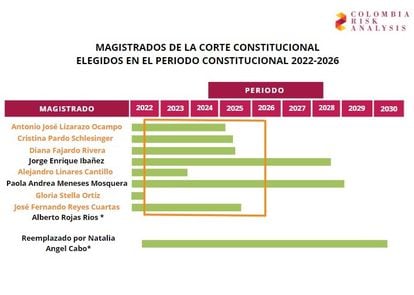

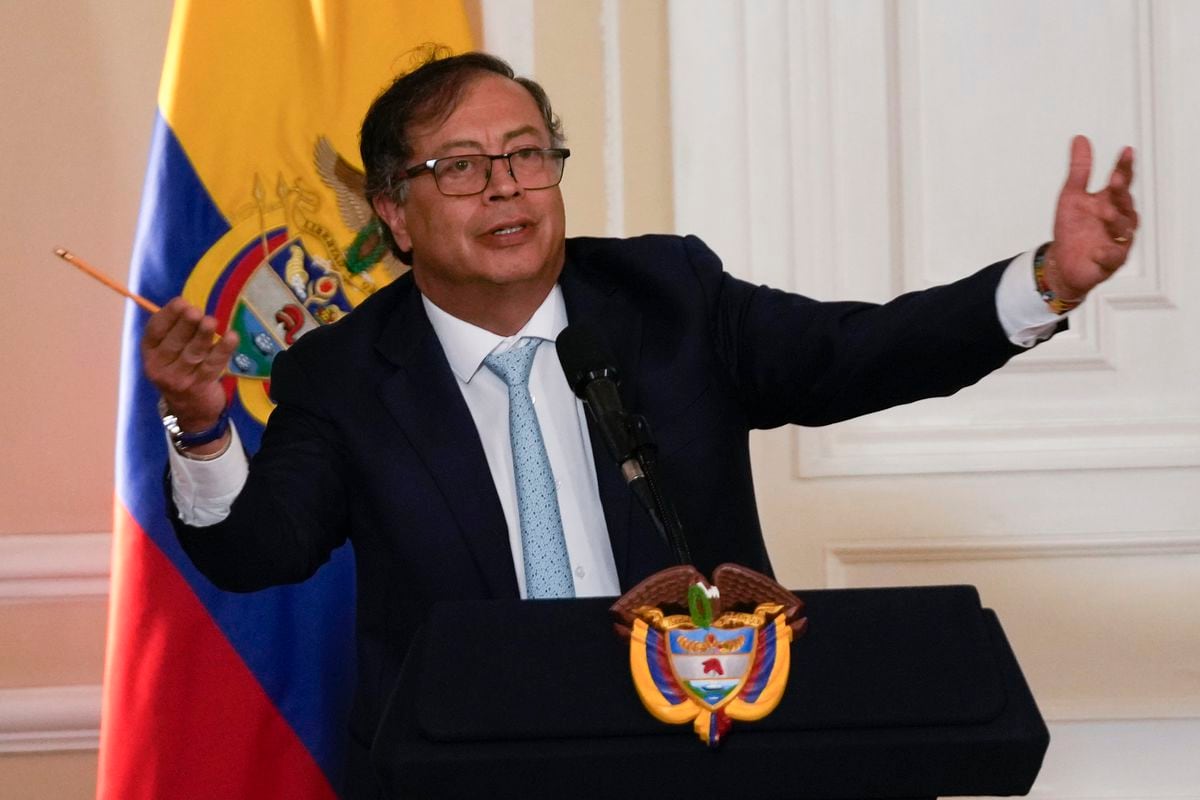

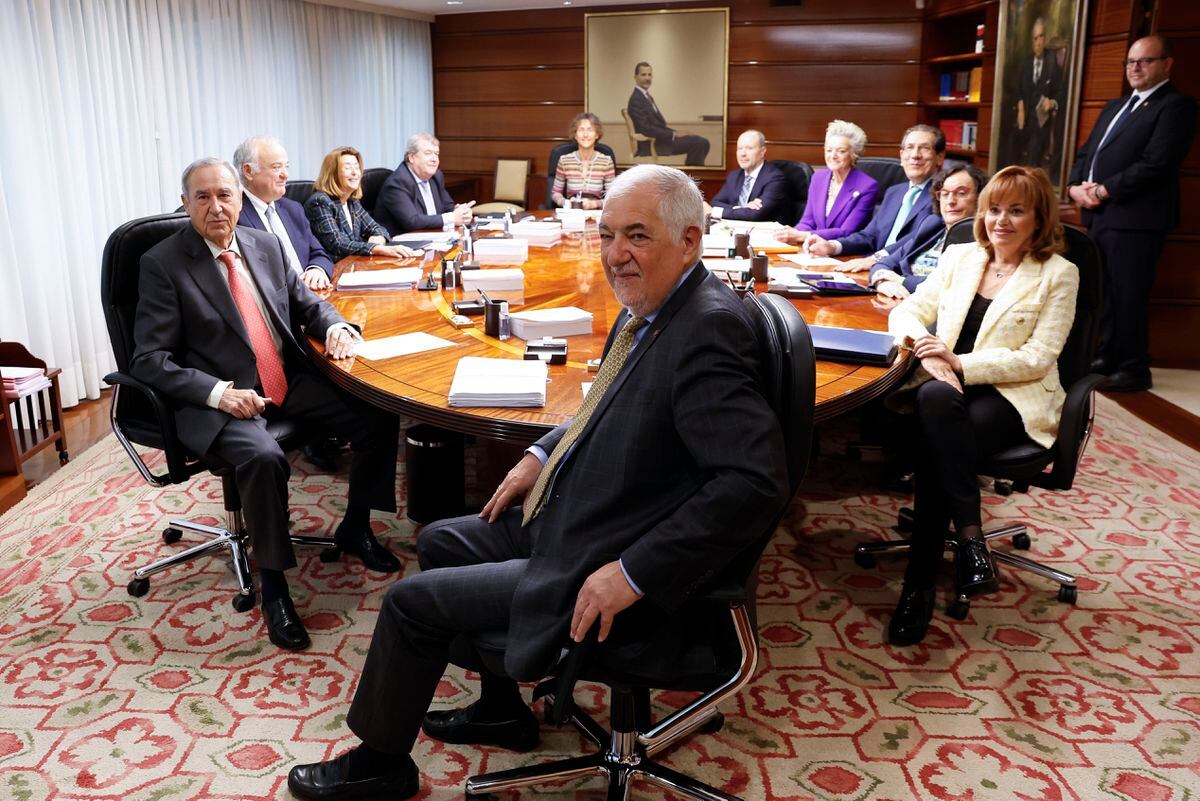
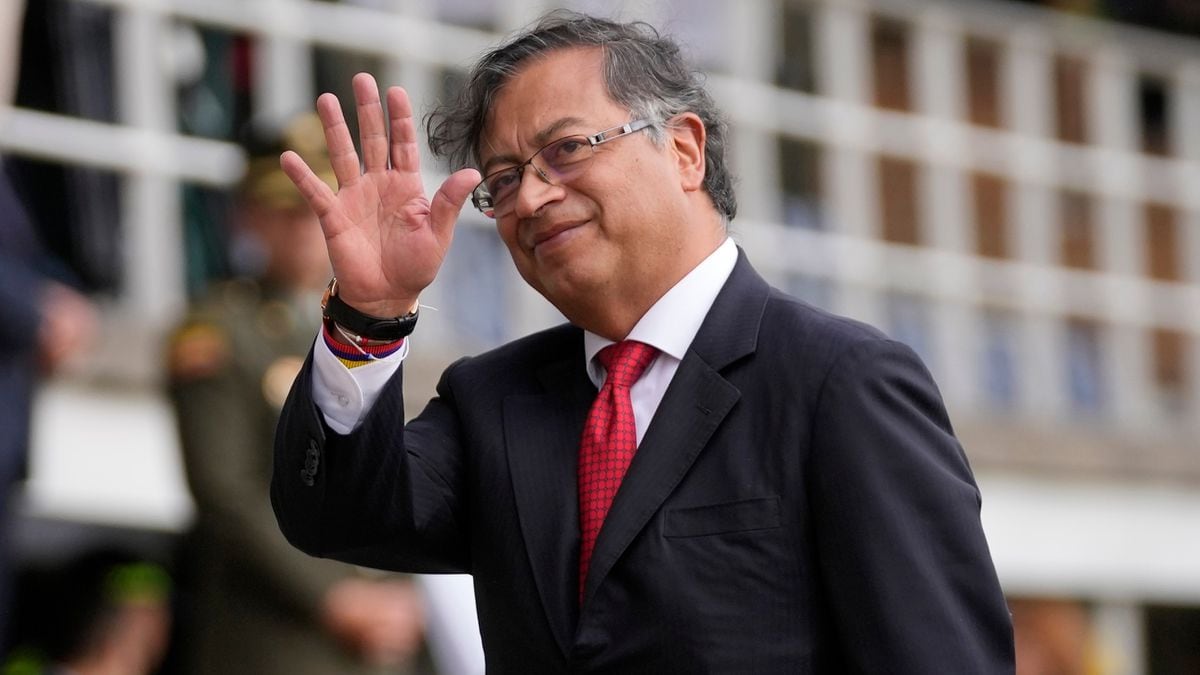
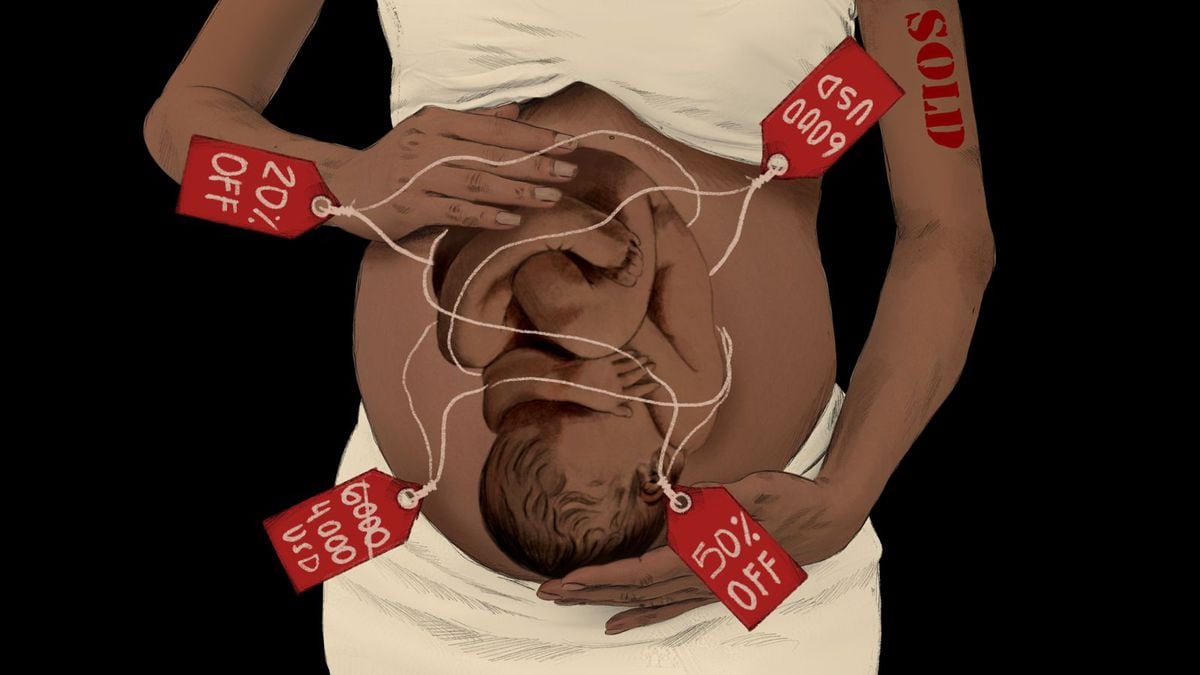
/cloudfront-eu-central-1.images.arcpublishing.com/prisa/NYNKKIEXBFHFFG6GV65QVUUAL4.jpg)






